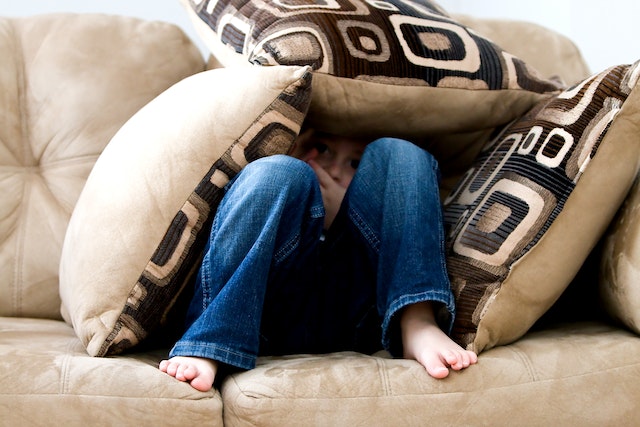Parental alienation, a profound and often under-recognised issue, significantly disrupts family relationships and dynamics.
According to a 2020 study by the Australian Institute of Family Studies, around 10% of children aged 0–17 live in a family situation where the father and mother live separately.
This situation often becomes fertile ground for the effects of parental alienation. Notably, the problem exacerbates when a mother loses custody for alienating the father, leading to reevaluating child custody decisions.
This article will discuss the multifaceted impact of parental alienation, especially its effects on children.
Consequences of Parental Alienation
Parental alienation refers to the process and result of psychological manipulation of a child into showing unwarranted fear, disrespect, or hostility towards a parent or other family members.
This can occur in separation or divorce situations, where one parent may manipulate the child to reject the other parent. The consequences of parental alienation can be severe for the couple, especially the children involved.
For the Alienated Parent
- Emotional Distress: Parental alienation can lead to profound emotional distress. The alienated parent loses a vital relationship with their child, often leading to depression, anxiety, and other mental health issues.
- Damage to Reputation: False allegations of neglect or abuse, common in severe parental alienation cases, can damage a person’s reputation.
- Legal Complications: These situations can lead to complex and prolonged legal battles over custody and visitation rights, financial strain, and emotional stress.
For the Alienating Parent
- Strained Relationship with the Child: Children can recognise manipulation over time, which might weaken or damage the relationship with the alienating parent.
- Legal Consequences: Courts do not look kindly on parental alienation. If found guilty, the alienating parent can face legal consequences, such as changes in custody agreements or the loss of visitation rights.
- Psychological Impact: Alienating parents may suffer significant guilt, regret, or emotional distress if they later recognise the harm their actions caused.
For the Child
- Emotional and Psychological Impact: Children who are victims of parental alienation may experience long-term psychological and emotional harm. They might feel guilty for betraying a parent and suffer low self-esteem, depression, substance abuse, and relationship difficulties.
- Impaired Parent-Child Relationships: The child loses a nurturing relationship with the alienated parent, which can affect their overall development and ability to form healthy relationships in the future.
- Developmental Issues: Parental alienation can interfere with a child’s social, emotional, and cognitive development. They might face academic difficulties, behavioural problems, and an inability to trust others.
- Impact on Future Relationships: The child may develop trust issues, creating difficulties in forming healthy relationships in the future. This can affect their romantic relationships, friendships, and, eventually, their relationships with their children.
Also read: Steps on How to Win Back an Alienated Child
The Effect of Alleged Parental Alienation Proven in Court
Parental alienation is a complex issue, and its recognition in a legal context has significant implications for the families involved.
When alleged parental alienation is proven in court, there are severe consequences for the alienating parent. Courts prioritise the child’s best interest in all decisions, and when parental alienation is identified, action is often taken to protect the child from further harm.
Loss of Custody or Change in Custody Arrangements
One of the most serious consequences a parent may face upon proven allegations of parental alienation is a change in custody arrangements.
The courts take a dim view of parental alienation, often resulting in emotional and psychological harm to the child.
Therefore, if the court establishes that one parent deliberately sabotages the child’s relationship with the other, it may order a change in custody or visitation rights.
In some extreme cases, the alienating parent might lose custody entirely, as was the case when a mother lost custody for alienating the father.
A notable case in Australia demonstrating the court’s stance is Ralton & Ralton [2016] FCCA 1832. After finding the mother had systematically alienated them from him, the court decided to live with their father was in the children’s best interests. This decision underscored the priority given to the child’s welfare over parental disagreements.
Court-Ordered Therapy or Parenting Classes
The court may also order the alienating parent to undergo therapy or parenting classes.
This intervention is intended to educate the parent about the effects of parental alienation and equip them with tools to foster a healthy relationship between the child and the other parent.
The child might also be recommended to engage in therapeutic services to help mitigate the impact of parental alienation.
Also read: Parental Alienation Signs and Examples You Should Watch Out
Legal Sanctions
In severe cases of parental alienation, the court can impose legal sanctions on the alienating parent. These sanctions could include fines or even jail time, depending on the jurisdiction and the severity of the case.
Supervised Visitation
In some situations, if the alienating parent retains some form of custody or visitation rights, the court might order that these visits be supervised.
This arrangement aims to ensure that the child’s best interests are prioritised and that no further alienating behaviour occurs during these visits.
Impact on Future Legal Proceedings
Proven allegations of parental alienation can also have long-term effects on future legal proceedings. Courts will likely consider past parental alienation instances when making future decisions about child custody or visitation rights.
This history can be detrimental to the alienating parent in subsequent legal issues related to the child.
The Impact of Parental Alienation on Our Client
Our child custody lawyers recently assisted a client who was battling the effects of parental alienation. The mother of his children was actively trying to disrupt his relationship with them.
She portrayed him negatively to the children and hid her shared financial responsibilities. This alienation was causing emotional distress for our client and his children.
With our comprehensive understanding of family law, we presented compelling evidence to the court of the mother’s alienating behaviour and its impact on the children.
Recognising the harmful effects of parental alienation, the court altered the custody arrangement in the children’s best interest.
Are You Navigating the Consequences of Parental Alienation?
If you are struggling with the effects of parental alienation, you’re not alone. At Justice Family Lawyers, we understand the emotional upheaval it can cause for both parents and children.
We are committed to guiding you through the complexities of child custody decisions, always prioritising your child’s best interests.
Don’t let parental alienation mar your relationship with your child. Reach out to us today, and let us help you restore balance and fairness to your family relationships.
Principal of Justice Family Lawyers, Hayder specialises in complex parenting and property family law matters. He is based in Sydney and holds a Bachelor of Law and Bachelor of Communications from UTS.







4 thoughts on “Effects of Parental Alienation on Family Relationships”
This is a good subject to talk about. This has had a personal impact on me.
hi, do you have lawyers that specialise in parental alienation. i have not seen my kids in 7 months and they dont want to see me.
Hi Gino, yes we do have lawyers that specialise in parental alienation. We will be in contact with you about this.
Parental alienation is a horrible scourge in this country, i was part of a case where the other parent alienated the kids against me. courts let her get away with it.